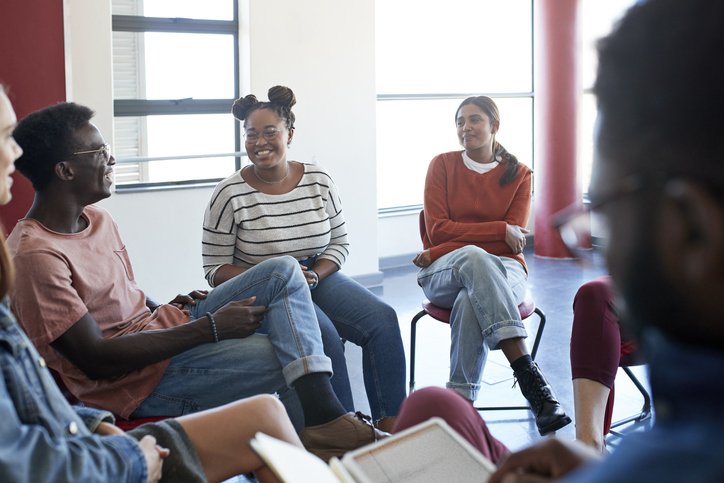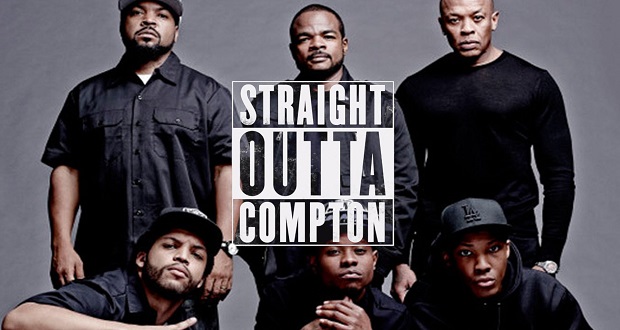
The COVID-19 pandemic has caused a significant impact on the mental health of many (Wang et al., 2020). In that impact, college students are not excluded, and have been identified as “particularly vulnerable” to the impacts of the pandemic (Babb et al., 2021). In fact, it has been found that as a result of the COVID-19 pandemic, young adults are more likely to be impacted financially and socially, experience barriers to learning, and have increased likelihood of infection (Boeren et al., 2020). Additional studies have found that the rates of students negatively impacted by anxiety and depression, which were already common concerns for college students prior to the pandemic, are increasing (McFarland et al., 2019). In one study, it was found that 35% of undergraduate students screened positive for major depressive disorder, and 39% screened positive for generalized anxiety disorder after the onset of COVID-19 (Chirikov et al., 2020). Another study reflected 71% of students had increased levels of stress, depressive thoughts, and anxiety due to the pandemic (Eysenbach et al., 2020). Indubitably, college students have had and continue to experience significant impacts in their mental health as a result of the COVID-19 pandemic.
Studies have found that the rates of students negatively impacted by anxiety and depression, which were already common concerns for college students prior to the pandemic, are increasing. Share on XIn response to the critical need of addressing the mental health crisis amongst college students, all higher education institutions should implement peer support and peer counseling programs. Peer support and peer counseling programs (PSCP) should be implemented and supported because they expand the capacity of traditional campus counseling services (TCCS) and reach a larger population of students, including students of color, who are disproportionately underserved, and deserve to receive mental health support just as much as their white colleagues. In addition, PSCPs should be implemented because data from multiple sources reflect that college students prefer to turn to each other for support and have a demonstrated interest in PSCPs. It is time for higher education administrators to stop dismissing PSCPs due to the risk that comes with such programs. With adequate support, including training and funding, PSCPs have been proven to positively impact the mental health of college students.
In response to the critical need of addressing the mental health crisis amongst college students, all higher education institutions should implement peer support and peer counseling programs. Share on X
Expansion of Traditional Campus Counseling Services’ Capacity
Given the significant impact college students are experiencing surrounding mental health, it is not shocking that students have turned to mental health support more than ever in the pandemic. What also is not shocking is how “stretched” and “strained” campus counselors feel as they work to respond to the need of students (Field, 2022). Luckily, that is where PSCPs can support TCCS through providing a solution for students facing less serious problems, such as loneliness and stress, to receive support, resources, and intervention. Brigitte Cronin, recruitment coordinator of the Northeastern University Lean on Me chapter, which is an anonymous texting service created by MIT students in 2016, supports the use of PSCPs for “lower-level problems,” as they believe it is much more convenient to utilize a PSCP text line than it is to locate a therapist (Field, 2022). Contrary to potential belief, crisis support lines are not singular to PSCPs; peer support and counseling can include small group facilitation, awareness and preventative initiatives, and general drop-in clubhouse or safe spaces. These various program types provide an alternative to TCCS solutions and can relieve the stress from therapists and increase their capacity to serve more severe issues.
Reach of Larger Population, Including the Underserved
With the excessive number of reasons students have for not utilizing the traditional counseling services offered at universities, often referred to as the “treatment gap,” many students have turned to peer support and peer counseling programs (Field, 2022); the unfortunate reality, however, is that not all students who have sought support received adequate support. Truly, one of the most critical and encompassing barriers for Black students and other minorities is accessing support from TCCS therapists who have apparent identity similarities and life experiences (Field, 2022). Students reported that their identities are not represented by the TCCS therapists, where most of the therapists are white, cisgender women; this lack of representation leads students to seeking out their peers first about emotional challenges (CCMH, 2020). It has been reported that lack of cultural competence is a significant deterrence for students of color, as it pertains to their pursuit to utilizing TCCS (Field, 2022). Specifically, Black students have shared a need for support from someone who understands that their suffering is different from other’s suffering; Black students also expressed a lack of desire to educate their therapist about the cultural differences that exist between them, especially given they are in the midst of their own storm and crisis when approaching support (Field, 2022).
One of the most critical and encompassing barriers for Black students and other minorities is accessing support from therapists who have apparent identity similarities and life experiences. Share on XStudents of color are not the only minority and oppressed group who faces challenges with feeling represented by TCCS; LGBTQIA+ students also report a lack of inclusion in TCCS spaces (CCMH, 2020). The result of minority and oppressed groups not feeling included and represented by TCCS results in students seeking their peers for support, as they desire safe spaces to relieve stress and address their issues. In fact, rates of PSCP use were highest among Black, LGBTQIA+, and first-generation students, who were more likely than others to say it was “very important” to them that they work with a peer counselor with similar lived experiences and identities (BTWF, 2022). While one would hope the experience of students of color and other marginalized groups is an unintentional reality, what higher education administrators must be intentional about is responding to data which reflects how certain communities of campus populations are not able to achieve the same level of access to campus mental health support as some of their peers. Not only is this reality devastating, but it also proves a path for students to claim negligence if administrators fail to respond through supporting the implementation of PSCPs.
Data Reflection that College Students Prefer to Turn to Each Other for Support and Have a Desire for PSCPs
It has been found that students prefer to seek each other for support rather than going to traditional counseling services (BTWF, 2022). According to the Mary Christie Institute and Born This Way Foundation, one in five college students are utilizing peer counseling and of those who are not currently utilizing PSCPs, 62% indicated an interest in using peer support services. Overall, interest in peer counseling, specifically, has been higher since the COVID-19 pandemic began (BTWF, 2022). It is clear that students desire something different than a traditional therapy and doctor-patient dynamic, as they are suspicious of authority figures and professionals (Field, 2022). Considering the significance of the treatment gap, as well as the numerous causes of said gap, it is not shocking that students prefer to turn to each other for support.
Interest in peer counseling, specifically, has been higher since the COVID-19 pandemic began. It is clear that students desire something different than a traditional therapy and doctor-patient dynamic. Share on XStudies have found that, in response to avoiding negative interactions with professionals and inadequate access to professional support, students tend to go to peers first when experiencing emotional challenges (CCMH, 2020). Sadly, college students feel a need to “save themselves” due to experiences with professionals and authority figures (Field, 2022). Students feel they simply respond better to their peers, who will have a better chance of understanding them and providing the support they need, compared to professional therapists (Field, 2022).
More students, specifically Black students and other minorities, would utilize peer support over professional counseling services (CS) due to fears of what they would experience with CS professionals compared to their peers (Field, 2022). One must pose the question, if they do not feel comfortable approaching professionals, and if they did not turn to their peers, where would they obtain support? The unfortunate reality, though, is that even in seeking support from peers, students fear being a burden to their friends (BTWF, 2022). So, just seeking their friends is not the answer. Having peer support from trained peer counselors relieves the pressure of students who feel like they are taking too much to their friends, but also cannot access or do not desire support from professional therapists (BTWF, 2022).
Having peer support from trained peer counselors relieves the pressure of students who feel like they are taking too much to their friends but also cannot access or do not desire support from professional therapists. Share on X
Refuting the Counterargument for PSCPs
Of course, with anything conceptually or socially new, there are strong critics. Amongst the critics of PSCPs includes higher education professionals, who cite the ‘risk’ of PSCPs as their justification to not implementing peer support and counseling programs. While, inarguably, there are risks associated with the implementation of PSCPs, the data-supported reality is that with training, the effectiveness of the individual providing support increases, as well as their ability to identify a potential high-risk situation prior to a crisis event occurring (Money et.al., 2011).
Additionally, it should be considered that for the Crisis Text Line, which is a “free, 24/7 text line for people in crisis in the United States, the service is powered by volunteer Crisis Counselors who work remotely – anywhere with a computer and secure internet connection…” (Crisis Text Line). The volunteers for the Crisis Text Line complete a 30-minutes application, undergo a background screening, complete a “30-hour web-based crisis counseling and intervention training” (Crisis Text Line), which the Line boasts can be completed “…anywhere—in your PJs, in a coffee shop, wherever…” (Crisis Text Line). Given this information, it is almost impleadable for higher education institutions to dismiss providing PSCPs due to the risks associated with such programs. Students are volunteering for the Crisis Text Line which supports the entire United States; what makes that college student inadequate to support their own institution of higher education?
Standardly, becoming a crisis line volunteer requires 30-40 hours of training, passing a reference check, being empathetic, knowing how to handle crisis situations, which is taught in the training, and learning how to perform suicide risk assessments and interventions (MacDonald, 2018). Colleges and universities should have little problem in providing the necessary training needed to equip volunteers, especially considering they could provide course credit for the completion of training (Field, 2022). With some parents filing lawsuits against colleges for mishandling their students’ mental health needs (Field, 2022), providing PSCPs with trained peer counselors, who would be more accessible than TCCS staff, increases the amount of support students can have when in crisis, which ultimately reduces the risk of student suicides and other mental health deaths.
An important note about properly trained and supported PSCPs is that peer counselors are trained to identify severe crisis situations which require additional, more professional support. With this aspect of PSCPs, college students are better connected to professional help when they need it, due to the referrals they receive from their peer supporters. Again, it has been established that college students’ receptivity is higher when working with their peers, and so, the students are more likely to utilize the referral from their peer than they would if the same referral were given by a TCCS. Peer support and counseling programs reduce university risk as it pertains to managing the mental health of its students. PSCPs give students a much-needed relatable lifeline.
Peer counselors are trained to identify severe crisis situations which require additional and more professional support. With this aspect, college students are better connected to professional help when they need it. Share on XAnother debate centers around the sourcing of students to staff the programs, with some stating that students would not have a desire to work in such a capacity nor would the experience be effective. Such claims are simply unfounded. Colleges and universities that offer social work, psychology, or counseling degrees, should have minimal difficulty in sourcing student staff, being that PSCPs provide those helping-field students amazing leadership, clinical, and educational opportunities – specifically as it relates to mental health (Field, 2022). Even in the absence of helping-field degree programs, data shows that peer supporters enjoy the “rewarding feeling” of assisting their peers and making a difference (Field, 2022).
Obtaining student buy-in and support is not the hurdle colleges should dismiss PSCPs over! Colleges and universities can fill student staff positions through work-study funding and by creating graduate assistant and intern positions (Field, 2022), which eases the institutional financial strain. Truly, college students desire to support each other and benefit from providing peer support (BTWF, 2020). This desire is supported by the nearly half (45%) of students who serve in providing PSCPs reporting “helping others” as their main motivation (BTWF, 2020). Born This Way Foundation also found that students providing PSCPs are more likely to score higher on well-being assessments than those who do not provide peer counseling. Not only do peer supporters report an increase in well-being through participating in PSCPs, but surveys show that students who receive peer support develop and increase coping skills and experience improvements in their well-being (Field, 2022). Staffing, capacity, efficacy are not concerns for properly implemented PSCPs.
Conclusion
Given that well-respected programs such as the Crisis Text Line onboard college students, and have had successful outcomes, there is no doubt that colleges and universities can do the same. There are already very successful PSCPs based at universities, including Massachusetts Institute of Technology, University of Albany, New York University, University of Michigan at Ann Arbor, and University of Virginia. There is no way 73% of college and university presidents can continuously identify “mental health of students” as a pressing issue (Taylor, 2021), and not consider the full value peer counseling can add to a university’s student mental health solutions. With PSCPs expanding the capacity of traditional campus counseling services, reaching a larger population of students than TCCS, including students of color and LGBTQIA+ students, and being desired by college students, all higher education institutions should implement and support peer support and peer counseling programs.
There is no way 73% of college and university presidents can continuously identify mental health of students as a pressing issue and not consider the full value peer counseling can add to mental health solutions. Share on X
References
Babb, S. J., Rufino, K. A., & Johnson, R. M. (2021, June 24). Assessing the effects of the COVID … – journals.sagepub.com. SAGEJournals – Assessing the effects of the COVID … https://journals.sagepub.com/doi/full/10.1177/07417136211027508
Become a volunteer. Crisis Text Line. (2022, April 6). Retrieved April 30, 2022, from https://www.crisistextline.org/become-a-volunteer/
Boeren, E., Roumell, E. A., & Roessger, K. M. (2020). COVID-19 and the future of adult education: An editorial. Adult Education Quarterly, 70(3), 201-204.
Center for Collegiate Mental Health (CCMH). (n.d.). Center for collegiate mental health (CCMH) 2020 annual report. Center for Collegiate Mental Health. https://ccmh.psu.edu/assets/docs/2020%20CCMH%20Annual%20Report.pdf
Chirikov, I., Soria, K. M, Horgos, B., & Jones-White, D. (2020). Undergraduate and Graduate Students’ Mental Health During the COVID-19 Pandemic. UC Berkeley: Center for Studies in Higher Education. Retrieved from https://escholarship.org/uc/item/80k5d5hw
Eysenbach, G., Fagherazzi, G., & Torous, J. (2020). Effects of COVID-19 on College Students’ Mental Health in the United States. The National Center for Biotechnology Information.
Field, K. (2022, April 6). Colleges Turn to Students’ Peers for Mental-Health Support. The Chronicle of Higher Education . https://www-chronicle-com.libproxy.siue.edu/article/colleges-turn-to-students-peers-for-mental-health-support
Grubic, N. (2022, May 2). Student Mental Health in the midst of the … – sage journals. International Journal of Social Psychiatry. https://journals.sagepub.com/doi/full/10.1177/0020764020925108
Johnson, B. A., & Riley, J. B. (2021). Psychosocial impacts on college students providing mental health peer support. Journal of American College Health, 69(2), 232–236. https://doi-org.libproxy.siue.edu/10.1080/07448481.2019.1660351
MacDonald, D. K. (2018, November 25). What makes a good crisis line volunteer. Dustin K MacDonald. http://dustinkmacdonald.com/makes-good-crisis-line-volunteer/
McFarland, J., Hussar, B., Wang, X., Zhang, J., Wang, K., Rathbun, A., … & Mann, F. B. (2019). The Condition of Education 2019. NCES 2018-144. National Center for Education Statistics.
Money, N., Moore, M., Kasper, K., Roeder, J., Bartone, P., & Bates, M. (2011, January). Best practices identified for Peer Support Programs. Defense Centers of Excellence. https://staging.mhanational.org/sites/default/files/Best_Practices_Identified_for_Peer_Support_Programs_Jan_2011.pdf
Peer counseling in College Mental Health. Born This Way Foundation (BTWF). (2022, January 24). https://bornthisway.foundation/research/peer-counseling-in-college/
Taylor, M. (2021, May 20). College and university presidents respond to COVID-19: 2021 Spring term survey, part II. Research & Insights. https://www.acenet.edu/Research-Insights/Pages/Senior-Leaders/Presidents-Respond-COVID-Spring-II.aspx
Wang, C., Pan, R., Wan, X., Tan, Y., Xu, L., Ho, C. S., & Ho, R. C. (2020, March 6). Immediate psychological responses and associated factors during the initial stage of the 2019 coronavirus disease (covid-19) epidemic among the general population in China. MDPI. https://www.mdpi.com/1660-4601/17/5/1729


















